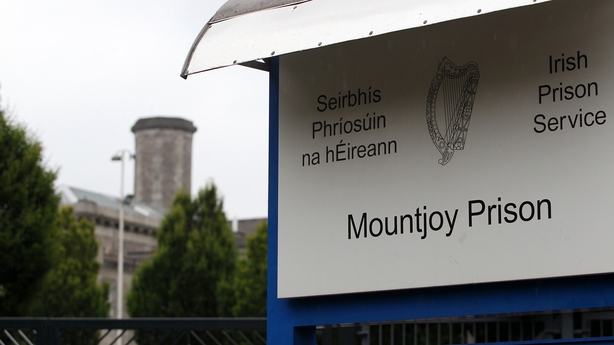A murder trial jury must consider whether a Mountjoy prisoner honestly believed he was acting in self-defence when he fatally assaulted a fellow inmate.
David Dunne, 40, with a last address in Summerhill, Dublin 1, has pleaded not guilty to the murder of Robert O'Connor on 29 July 2022 at Mountjoy Prison in Dublin.
Ms Justice Mary Ellen Ring told the jury of nine men and three women that Mr Dunne denies that he intended to kill Mr O'Connor and told gardaí he was defending himself during the altercation in his cell.
To find Mr Dunne guilty of murder, Ms Justice Ring told the jury they must be satisfied beyond a reasonable doubt that the accused intended to kill or at least to cause serious injury to Mr O'Connor.
Ms Justice Ring said a person is entitled to use force in self defence and if they use only such force as a reasonable person would use in the circumstances as Mr Dunne honestly believed them to be, then he is not guilty of any offence.
If he had an honest belief that he was acting in self-defence but used more force than a reasonable person would consider necessary, then he is guilty of manslaughter and not murder.
Ms Justice Ring told the jury that they will begin their deliberations tomorrow.

The verdicts they can return are guilty of murder, or not guilty, or not guilty of murder but guilty of manslaughter. Their decision must be unanimous, she said.
The jury has viewed CCTV from the prison landing which showed Mr O'Connor entering Mr Dunne's cell shortly after teatime.
Mr Dunne entered after the deceased, followed by three other inmates.
Prison officers reacted to a commotion in the cell and one said that he saw Mr Dunne stamping on the deceased's head more than once.
Mr Dunne later told gardaí that he wanted to chat about an assault on Mr O'Connor two days previously.
Once inside the cell, he said Mr O'Connor attacked him by punching him twice.
Michael Delaney SC, for the Director of Public Prosecutions previously reminded the jury that a pathologist's report found that Mr O'Connor died from blunt force trauma to the head.
A neuropathological exam showed that Mr O'Connor's brain was subjected to a rotational force that caused a shearing of the nerve ends, he said.
Those injuries, counsel said, were caused by a "vicious and unprovoked assault" by the accused.
Mr Delaney said CCTV evidence suggested "an element of coordination" in the interactions visible between Mr Dunne and the three other prisoners in the minutes before the fatal encounter.
In particular, he pointed to footage which he said suggests that when Mr O'Connor arrived on Mr Dunne's wing of the prison, the accused signalled to one of those prisoners.
When the accused went inside the cell, Mr Delaney said the others followed as if they "knew something was going down".
Mr Delaney said the CCTV undermines Mr Dunne's claim that he invited the deceased to his cell for a "friendly chat".
It further undermined Mr Dunne's claim in garda interviews that he acted in self-defence after being attacked by the deceased, counsel said.
"The objective, reliable evidence shows he (the accused) lured Robert O'Connor into that cell for the purpose of attacking him," Mr Delaney said.
Mr Grehan said nobody, including the accused, could have known that Mr O'Connor would come to that landing at that time.
The last place Mr Dunne would choose for an attack would be his own cell, which is watched by multiple CCTV cameras covering all entrances and exits and where two prison officers are stationed nearby, Mr Grehan said.
Mr Grehan said the killing was not an intentional or planned action but was "in fact a reaction" without any premeditation and the appropriate verdict, counsel said, and that the accused is not guilty of murder but guilty of manslaughter.

